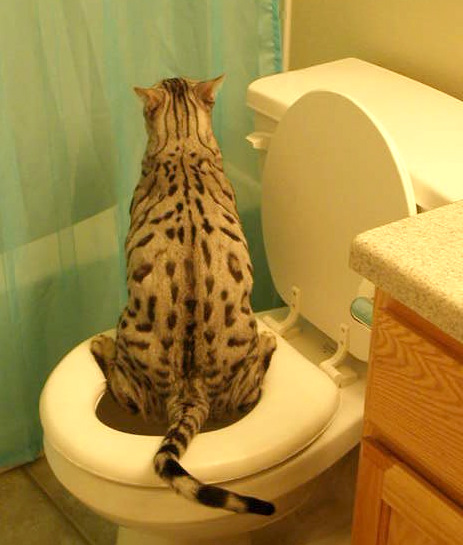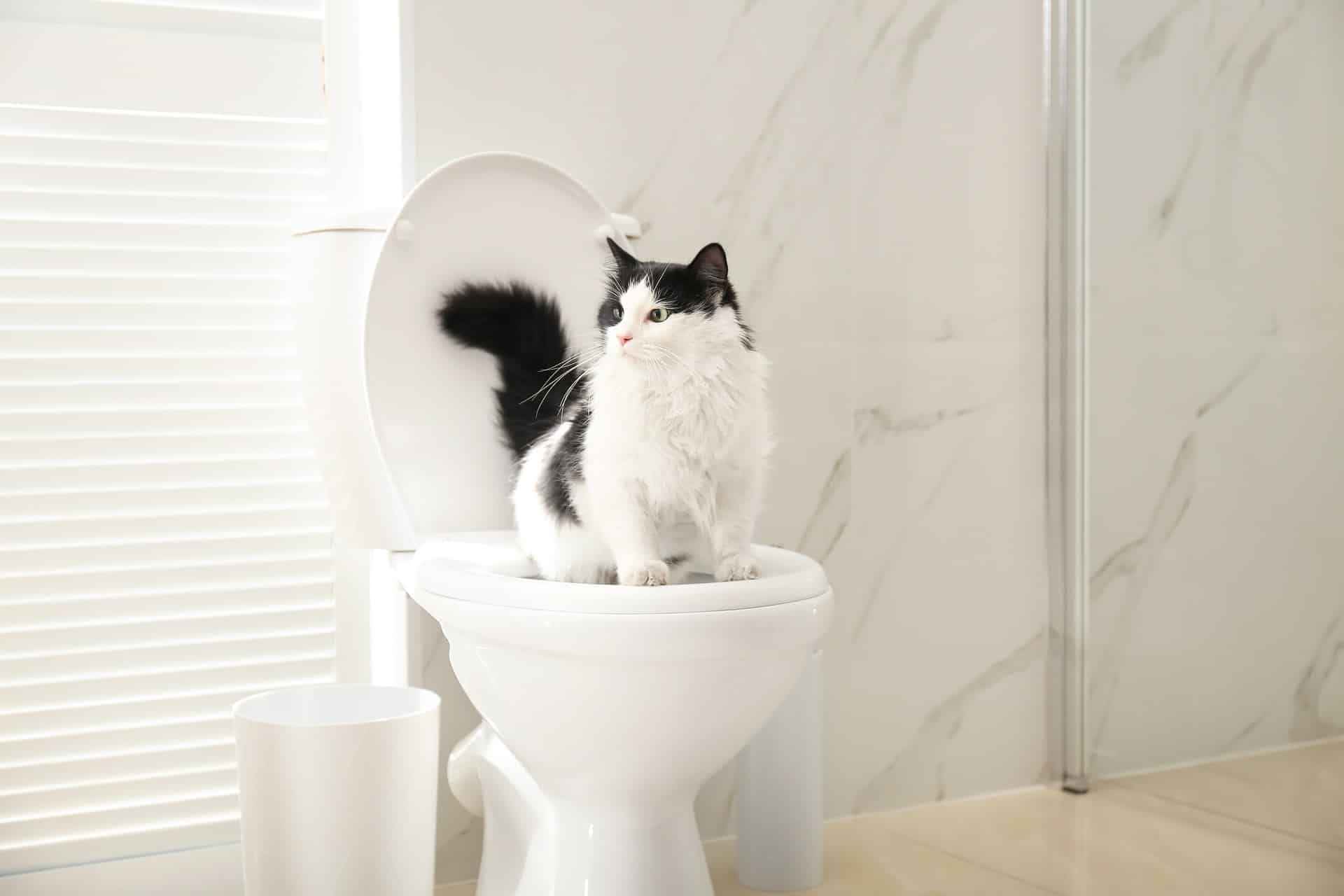Our Significance of Not Emptying Animal Waste Down the Toilet
Our Significance of Not Emptying Animal Waste Down the Toilet
Blog Article
How do you really feel about Don't Flush Your Pets Poo Down The Loo, Vet Warns?

When it comes to taking care of waste, particularly animal waste, lots of people commonly turn to the convenient option of flushing it down the toilet. However, this seemingly simple service can have significant effects for the atmosphere and public health. In this article, we'll discover why flushing animal waste down the bathroom is a bad idea and provide different methods for appropriate disposal.
Introduction
Correct waste disposal is important for keeping ecological sustainability and public health. While it may seem safe to purge animal waste down the commode, it can result in different issues, both for the setting and human well-being.
Threats of flushing pet waste
Environmental influence
Purging pet waste introduces dangerous microorganisms and microorganisms right into rivers, which can adversely affect water ecological communities. These virus can contaminate water resources and harm aquatic life, interrupting delicate environments.
Public health problems
Animal waste contains unsafe germs such as E. coli and Salmonella, which can position serious wellness dangers to people. Purging animal waste down the commode can contaminate water materials, causing the spread of conditions and infections.
Alternatives to flushing
Rather than purging pet waste down the toilet, there are numerous alternative disposal approaches that are a lot more eco-friendly and sanitary.
Composting
Composting animal waste is a green way to deal with it. By composting, raw material is broken down into nutrient-rich dirt, which can be used to fertilize gardens and plants.
Landfill disposal
Getting rid of pet waste in a landfill is another option. While not as eco-friendly as composting, it is a more secure choice to flushing, as it avoids the contamination of water resources.
Family pet garbage disposal systems
There are specific pet garbage disposal systems readily available that safely and hygienically dispose of animal waste. These systems usually make use of enzymes to break down waste and eliminate odors.
Steps to correct animal garbage disposal
To make sure proper disposal of pet waste, adhere to these steps:
Scooping and getting waste
Consistently scoop and bag pet waste making use of biodegradable bags. This avoids waste from infecting the environment.
Utilizing assigned waste containers
Dispose of bagged animal waste in marked waste bins, such as garden compost bins or landfill containers. Avoid flushing it down the commode in any way prices.
Cleaning can and pet areas regularly
On a regular basis tidy litter boxes and family pet areas to avoid the buildup of waste and microorganisms. Usage pet-safe cleaning products to keep health.
Advantages of correct disposal methods
Adopting proper disposal techniques for animal waste offers numerous advantages:
Decreased environmental pollution
Correct disposal approaches minimize the threat of environmental pollution, protecting waterways and ecological communities from contamination
Minimized danger of water contamination.
By staying clear of flushing animal waste down the bathroom, the danger of water contamination is significantly minimized, safeguarding public health.
Boosted cleanliness and hygiene
Proper disposal approaches advertise far better cleanliness and hygiene, developing a much safer environment for both people and pets.
Final thought
To conclude, purging pet waste down the bathroom is damaging to the setting and public health. By taking on different disposal methods and complying with proper waste management practices, we can lessen the adverse influence of animal waste and add to a cleaner, healthier earth.
What To Do With Dog Poo – The Do's And Don'ts Of Disposing Of Faeces
Dog poo bins
Some councils provide dedicated dog waste bins in popular dog-walking areas that can take dog poo that has been bagged but you can legally dispose of dog waste in any public litter bin, as long as it is securely bagged. This also applies to your wheelie bin at home.
Do not flush
Water companies do not recommend flushing dog faeces down the toilet because certain parasites can survive the water processing treatment and are potentially harmful to humans. You should also never consider flushing dog poo that has been bagged down the toilet as the bags will not break down and instead create severe blockages in the sewage system.
In the woods
The Forestry Commission promotes a ‘stick and flick’ method for dealing with waste in the woods. This means finding a stick and using it to flick any poo from off the path so that it is out of the way of other walkers. You could also bury it as long as it is not in an area where there might be livestock.
Livestock
Parasites found in dog poo can be transmitted to livestock if they inadvertently eat infected faeces that has been left on grazing land. This could result in the death of sheep or abortion in cattle so you should always make sure you pick up your dog’s waste in fields where livestock could be present.

On a regular basis tidy litter boxes and family pet areas to avoid the buildup of waste and microorganisms. Usage pet-safe cleaning products to keep health.
Advantages of correct disposal methods
Adopting proper disposal techniques for animal waste offers numerous advantages:
Decreased environmental pollution
Correct disposal approaches minimize the threat of environmental pollution, protecting waterways and ecological communities from contamination
Minimized danger of water contamination.
By staying clear of flushing animal waste down the bathroom, the danger of water contamination is significantly minimized, safeguarding public health.
Boosted cleanliness and hygiene
Proper disposal approaches advertise far better cleanliness and hygiene, developing a much safer environment for both people and pets.
Final thought
To conclude, purging pet waste down the bathroom is damaging to the setting and public health. By taking on different disposal methods and complying with proper waste management practices, we can lessen the adverse influence of animal waste and add to a cleaner, healthier earth.
What To Do With Dog Poo – The Do's And Don'ts Of Disposing Of Faeces
Dog poo bins
Some councils provide dedicated dog waste bins in popular dog-walking areas that can take dog poo that has been bagged but you can legally dispose of dog waste in any public litter bin, as long as it is securely bagged. This also applies to your wheelie bin at home.
Do not flush
Water companies do not recommend flushing dog faeces down the toilet because certain parasites can survive the water processing treatment and are potentially harmful to humans. You should also never consider flushing dog poo that has been bagged down the toilet as the bags will not break down and instead create severe blockages in the sewage system.
In the woods
The Forestry Commission promotes a ‘stick and flick’ method for dealing with waste in the woods. This means finding a stick and using it to flick any poo from off the path so that it is out of the way of other walkers. You could also bury it as long as it is not in an area where there might be livestock.
Livestock
Parasites found in dog poo can be transmitted to livestock if they inadvertently eat infected faeces that has been left on grazing land. This could result in the death of sheep or abortion in cattle so you should always make sure you pick up your dog’s waste in fields where livestock could be present.

We hope you liked our part about Should you flush animal waste down the toilet. Thanks a lot for spending some time to read our piece. Sharing is caring. Helping others is fun. I treasure your readership.
Get Quote Now Report this page